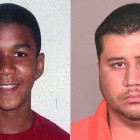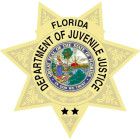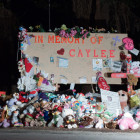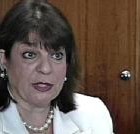

Juvenile Justice Information Exchange (https://jjie.org/tag/florida/page/7/)


Story by John Kelly and Ryan Schill
Today, the Supreme Court will hear oral arguments in two murder cases that resulted in mandatory life without parole (LWOP) sentences for juvenile offenders, both of whom were 14 at the time of crime. At the heart of both cases is the question of the constitutionality of sentencing a minor to die in prison. Below is a primer with everything you need to know about Tuesday’s oral arguments, and what events led up to them. The issue
Life without the possibility of parole, which has the common shorthand of LWOP, is the most severe penalty other than death that is handed down to convicts. A prisoner who receives an LWOP sentence will never have the opportunity to become a free citizen again, regardless of his or her attempts to rehabilitate in prison.

In Florida, a two-day symposium will bring together leading national advocates and experts to discuss the legal representation of abused and neglected children. Organizers of the symposium, sponsored by the American Bar Association, say there is an urgent need to raise public awareness that abused children need to have lawyers protecting them in all court proceedings. The program begins with a media briefing Thursday, Feb. 9 followed by a symposium Friday, Feb. 10.

Josh Harvey-Clemons, the No. 2 outside linebacker prospect in the nation, and the No. 1 overall prospect in Georgia could have his pick of colleges to choose from when he graduates high school this year. The 17-year-old, 6-foot-five, 200-pound senior, from Valdosta -- down in south Georgia -- finished the 2011 season as the Region 1-AAAAA defensive player of the year, while also being named to the first National All-State team. But this talented teen has narrowed his choices to three schools.

According to the juvenile delinquency reports for FY 2010-2011, statistics show a 10 percent decrease in Florida for the first half of 2011, ending June 30th.

Lawmakers in 16 states have proposed a so-called Caylee’s Law to prosecute parents who do not report their child missing quickly enough. The proposals come as a response to public outrage over the acquittal of Casey Anthony in the death of her 2-year-old daughter. An online petition calling for the law has received well over 1 million signatures. The new measure would make it a felony to wait to report a missing child for more than 24 hours. It would also make it a felony to wait to report the death of a child for more than an hour.

Central Florida’s Polk County has become the first jurisdiction in that state to make plans under a new state law to house juveniles who are awaiting trial in adult jail rather than in a state juvenile detention center, according to NewsChief.com, a Winter Haven, Fla., news site. That change was made possible because Polk Sheriff Grady Judd pushed state Sen. J.D. Alexander, R-Lake Wales, to sponsor a bill in this year’s Florida Legislature that loosens the standards county jails must meet to house juveniles. The state currently charges counties $237 per day to hold each juvenile in pretrial detention, and that rate is expected to rise later this year. Judd told NewsChief.com that the county expects to spend $70-$90 per day per juvenile detainee. He predicts the switch will save the county around $1.5 million.

In Florida, an investigation by The Palm Beach Post discovered more than a third of psychiatrists working for the state juvenile jails have accepted large speaking fees from pharmaceutical companies producing the anti-psychotic drugs regularly prescribed to kids in the Florida juvenile justice system. According to The Post, child advocates are claiming the doctors are over-prescribing the powerful psychotropic drugs to children in the juvenile jails as a “chemical restraint” and not for a legitimate medical reason. As a consequence of The Post’s findings, the Florida Department of Juvenile Justice Secretary Wansley Walters began an investigation into how psychotropic drugs are prescribed to children in DJJ custody.

The continuing debate about sentencing juveniles to life without parole has real-world implications for a 12-year-old boy in Jacksonville, Fla., accused of killing his two-year-old half-brother. The Florida attorney general, Angela Corey (pictured at left) charged Christian Fernandez as an adult in the first-degree murder case. Corey quoted in the Florida Times-Union, said eight years was not enough time to rehabilitate Fernandez. But his adult status leaves Fernandez open to the possibility of a life sentence. The Times-Union story describes how Corey’s staff spent two months examining the 12-year-old before deciding how to charge him. The story also takes a long look at the history of juvenile life without parole sentences.

A Florida law praised nationally as a landmark step against bullying is falling far short in its most basic of goals: To get schools to report bullying incidents. The Jeffrey Johnston Stand Up for All Students Act does a lot more than simply encourage schools to report bullying. It also requires local school districts to adopt policies against both in-person bullying and cyber-bullying, or else to risk the loss of state funding. But data from the Florida Department of Education shows that schools recorded barely 6,000 incidents of bullying last year — far fewer than experts say are likely to have occurred among the state’s 2.6 million students. That’s a tiny fraction of the number of incidents likely to have occurred.